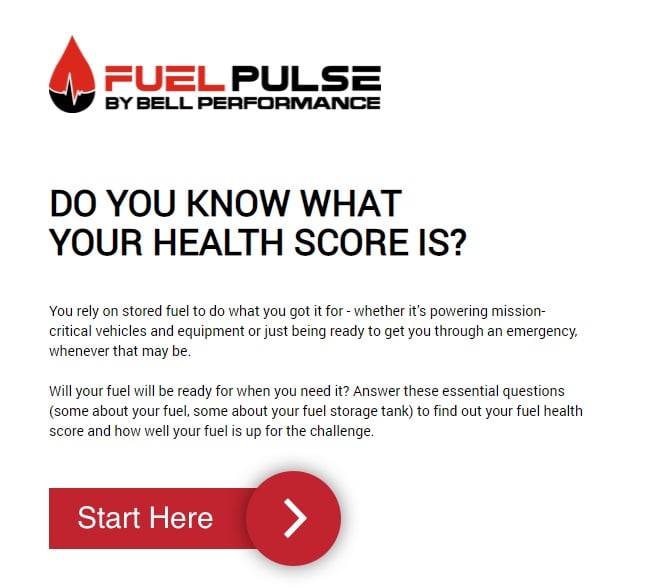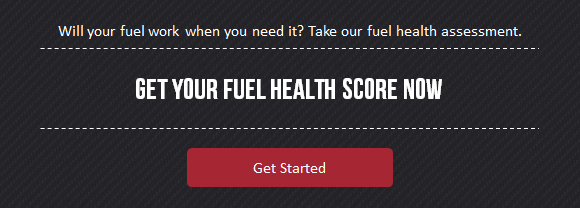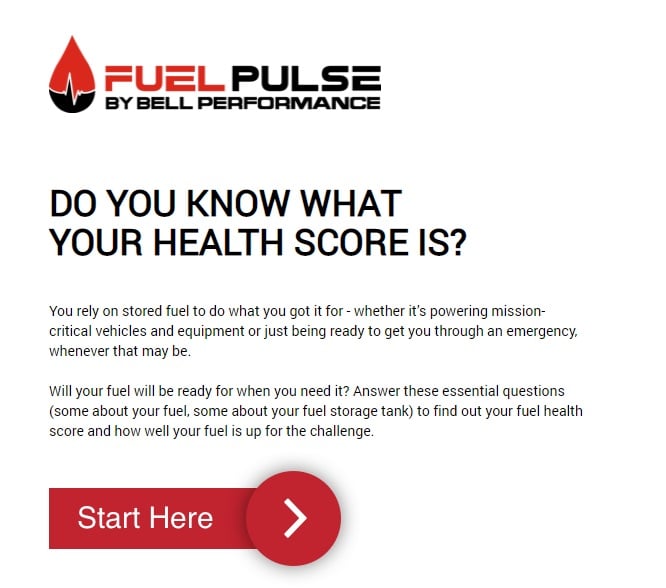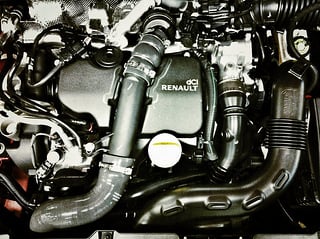What’s Your Fuel Health Score? The Webinar Transcript
As a service to our customers, dealers, and friends, Bell Performance hosts quarterly webinars on fuel topics of interest to their friends and their...
7 min read
Erik Bjornstad : Jul 31 2019

As a service to our customers, dealers and friends, Bell Performance hosts quarterly webinars on fuel topics of interest to their friends and their customers. This is a transcript of one of these recent webinars ca;;ed What’s Your Fuel Health Score? We will be publishing it as a multi-part series. If you would like to watch the archived presentation, please click here. For the first part of the transcript, please click here. For the second part, click here.
Okay. Question number nine. Regarding your tank filters and the frequency with which you're changing this filters, has that changed recently?
So those of us who've been in the industry long enough can probably see where we're going with this. One tried and true sign that something's going on in the storage tank is a change in the frequency with which you change your filters. If something's going on in the storage tank, then it's probably going to be increasing the amount of filterable particulates that end up in the fuel. Whether you're talking about microbial biomass, whether you're talking about tank sludge, asphaltene dropout, any of that kind of stuff. So if you start noticing the need to change your filters at a faster rate than what's normally established for your system, then that is a good bet that the health of your stored fuel is not what you'd ideally like a to be.
Question 10, the last time you examined your tank filters, did you find dark slime or other kinds of material in the filter?
It's one thing to have to change your filters more often than usual. It's another thing, a different thing, to find any kind of dark slimy material ending up in the filter itself. Both of these phenomenon, the rate at which you change your filters and what's ending up in your filters, both of those can be strong signs something's going on in your tank that shouldn't be there.
Now, generally speaking, you should not be getting dark slimy material showing up in your filters. That's not the kind of material that's normally produced by diesel fuel, even diesel fuel going unstable, it's, it's typically not associated with that. So this is usually a sign that at least part of the material is some kind of Biofilm or microbial biomass.
And if you have that in your filters, then that's a really strong indicator that there is microbial presence in the tank that you don't want that to be there. Now the color is the key here because microbial biomass, contrary to popular opinion, is not always dark in and of itself. You might notice there's a light colored or even a clear material in the filter which happens to be slimy. Well that's still biofilm and it's still a telltale sign of microbial presence. So if it's not always dark, you know, what does the darkness have to do with it? If the material is dark, what that darkness, that coloration is coming from is the biofilm being colored by asphaltene dropout or some kind of heavy end drop out from the fuel.
That means you got not just one problem, but at least two problems now going on in there. So if you have any kind of slimy material in your filters, but especially if it's dark material, then that's a good sign something's going on in your tank and in your fuel. That's not going to be good for your fuel’s health.
And then of course there's a third option in the question - you can't remember the last time you looked inside the filter. You might say, you know, I'm not sure about that. We haven't looked inside one of them. Strictly speaking, not remembering the last time you cracked open a filter isn't as bad as finding for sure dark material in that filter, but not remembering it. It speaks to the problem again of not paying close enough attention to the fuel and it speaks to how that kind of inattentiveness can hinder you from detecting and addressing potential problems in as timely a manner as is optimally necessary.
Okay. Next to last question, number 11. Talking about water, how much water was in your storage tank last time you checked? Free water monitoring for storage tanks. I think most of us, if not all of us, know this, free water monitoring is essential to any and all sound fuel maintenance. So if you're not sure how much water is in there, or maybe you're one of the few that you don't know how to check for water, well that's a big problem in and of itself right there.
Now, if you do have a measurement from the last time, uh, what's a good measurement? What's a bad one? Right? Way back in the day, you were allowed a certain amount of water. If it’s below half an inch or quarter inch or whatever, then you don't need to worry about it.
But of course, because of the microbial problems today, they're really moving away from that to try and say any detectable water is a problem. So what's the minimum amount of water that you typically can detect? For many tanks, that cut off is at about a quarter of an inch or so. But having any amount of water that's measurable, having any amount of water increases the chances of microbial fuel health problems. The reason this is is because microbes need very little water to do what they need to do, because it's a question of scale. Even if you have as little as an eighth of an inch or even like two millimeters of water, not even enough to measure. If you're talking about from a size standpoint to a microbe, if you put a microbe at the bottom of this two millimeter little tiny little film of water, scale wise, that is equivalent to a human being standing at the foot of Mount Everest and looking up at it. So even two millimeters of water is plenty enough water for a problematic amount of microbes to develop in your tank.
And then the final question, question number 12, have you had your tank or fuel service in the last six months? We're talking about something like, have you done fuel polishing or even just something like fuel testing or tank cleaning, anything like that. Have you had that done in the last six months?
So up to this point, all the questions have been about things that you may have noticed about your fuels condition, whether the fuels condition has changed, how it's changed, and also whether you've done certain things that are usually associated with good fuel maintenance like monitoring fuel condition, checking for water content, looking at your filters. So this question ties things up by asking about what kind of recent servicing of your fuel tank that you may have had done.
No servicing here can mean anything from tank and fuel filtration, fuel polishing some people call it that, to just simply inspection of the fuel or testing of the fuel by some kind of third party qualified third party provider.
The key consideration here isn't exactly what they did, but just whether they examined it. Again, this relates to what we said earlier about how we're interested in how close you're paying attention, and how simply paying closer attention to your stored fuel in your storage tanks makes it more likely that you're going to have healthier stored fuel in the long run. Having your tank or fuel serviced isn't something that everyone does because it is kind of an extra step, but it is a significant plus factor for maintaining good stored fuel health. So if you have had that done in the last six months, it's going to make it much more likely that your stored fuels health is going to be, shall we say, satisfactory.
So you've answered the 12 questions and your answers, as you were putting them in, your answers were assigned internal point values in accordance with what we know about their relationship to stored fuel health.
Once you're done, what comes up next is a page that looks like this. It's a results page. Now there's several things on here that you're going to want to notice.
Down the left hand side here, that's your score, your total score, your fuel health score. In this case, all the answers that I put in the field health score for me was 29, and it's on a scale of zero to 29 so I got the highest possible score. Now the thing to remember for the purposes of this tool, higher is bad and lower is better. Hopefully I actually don't have fuel that's as bad as all the answers I put in because if I did, I would be in real trouble.
So you see your fuel health score there and then what you see also is that the score is assigned a color. It's either going to be red, it's going to be yellow or it's going to be green. In this case, because it's the worst score, it qualified as red. This color assignment is designed to give you just a very clear visual classification of whether your score's good or bad.
Then, along with this, there is a quick recommendation box that has recommendations based on the color and score. So for example, my fuel health score was red, you know, pretty bad. And so what the tool tells me is - your fuel is at serious risk for the kind of problems that will compromise its ability to function. Then it's up to you whether you want to follow through on this, on whatever best practices apply to your situation. You may not know what those best practices are. Well, if you need assistance with that, that's exactly the kind of thing that we can help with.
You also have the option that, if you want, to get your results emailed to you. You can put in your email address here and say, send me the results. You click on it and you get an email with your answers and your fuel’s health score and the interpretation.
And then the final item on the results page is an option to get more information on the things that the, the Health Check tool’s been talking about. At the bottom of the page is a banner and it says your fuel health score, what does it mean? This is an optional report that we put together, what we might call a white paper report and it goes into more detail on each of the questions. What aspect of stored fuel health does that question pertain to? Why is it important? Maybe what's the science behind some of those things? And then most importantly for many of you, are there any best practice recommendations or some of these things that you should specifically be doing for your storage fuel? Once you've completed the tool, you have the option to get this additional white paper. All you do, you just click on the banner, which takes you to just a real simple landing page where all you have to do is put in your email address and that report will be emailed to you.
So that, my friends, is your Fuel Health Check tool. We created it because we wanted to give everyone out there a quick way to, shall we say, raise awareness about what might be going on with their fuel. Again, all of the questions in this tool relate to proven issues related to the stored fuel health. Of course once it's all said none, we wanted to give ways for you to get more information, if that's what you decided that you need to do.
So having reviewed all this, everyone is welcome to go give it a try, and see what it says for you. Remember that it's located www.bellperformance.com/fuelcheck.


As a service to our customers, dealers, and friends, Bell Performance hosts quarterly webinars on fuel topics of interest to their friends and their...

As a service to our customers, dealers and friends, Bell Performance hosts quarterly webinars on fuel topics of interest to their friends and their...

As a service to our customers, dealers and friends, Bell Performance hosts quarterly webinars on fuel topics of interest to their friends and their...